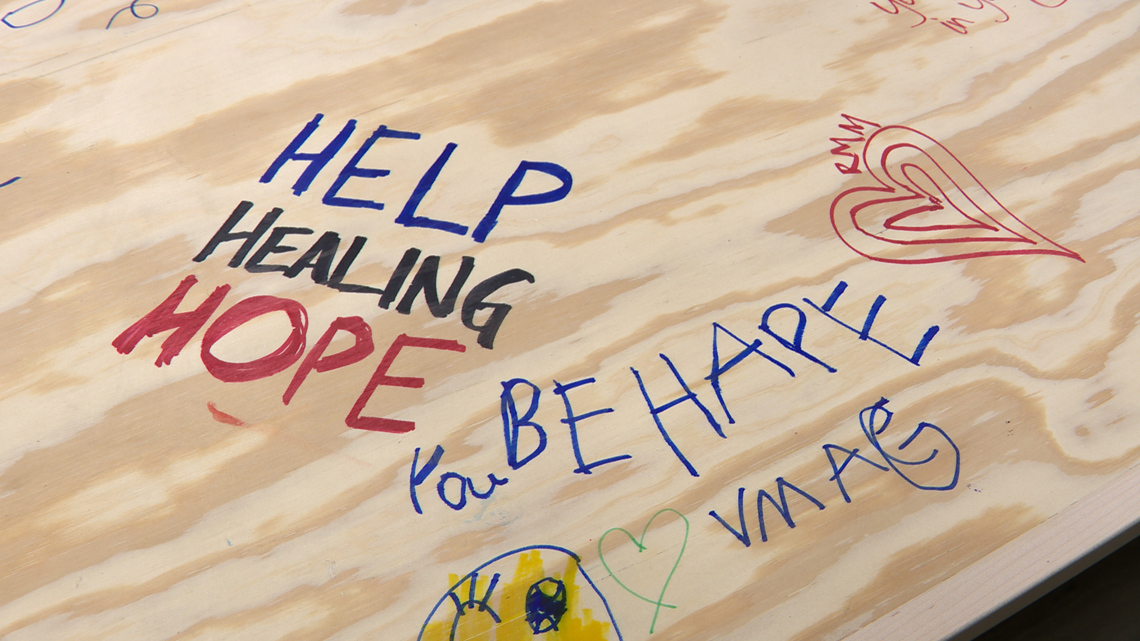
Texas faces a critical shortage of pediatric psychiatric providers as holiday stress intensifies mental health struggles for children and teens.
SAN ANTONIO — The holidays may bring lights, gifts and family gatherings, but for many children and teens, this time of year also brings stress, anxiety and emotional strain that often stay hidden behind closed doors.
Counselors at Roy Maas Youth Alternatives’ Family Counseling & Resource Center (FCRC) say they see those struggles intensify during the holiday season — a time when disrupted routines, financial pressure and complicated family dynamics can heighten mental-health challenges.
“It can be a hard time, especially if there’s been a lot of conflict or transition issues at home,” said Rachel Mialkowski, clinical director at RMYA.
Mialkowski says the center frequently works with adolescents who struggle to identify or express their emotions. The warning signs, she says, can be subtle.
“What you tend to see is a lot of isolation, sometimes behavioral changes,” she said. “They don’t communicate, they don’t want to engage with the family. They’ve lost interest in things they used to like to do.”
Children may also show irritability, frustration or sudden agitation.
“Maybe they’re a little bit more agitated than typical. They get annoyed very easily,” Mialkowski said. “Those are tell-tale signs for a parent to understand there’s something going on here.”
For some youth, holiday gatherings can trigger deeper issues.
“It could be self-esteem issues or anxiety — maybe social anxiety — when it comes to bigger gatherings and holiday events,” she said.
A statewide shortage of care
The increasing need comes as Texas faces a critical shortage of pediatric psychiatric providers. In 2025, the state has roughly 10 child psychiatrists per 100,000 children — far below the recommended 47.
More than 1.2 million children in Texas live with a developmental, emotional or behavioral disorder.
In Bexar County alone, 1-in-4 residents, more than 500,000 people, live with a mental illness.
Nationally, 1-in-6 youth ages 6 to 17 experience a mental-health disorder each year.
Half of all lifetime mental illness begins by age 14.
Support at RMYA
RMYA’s Family Counseling & Resource Center offers a range of programs designed to fill the gaps: individual counseling, psychiatric clinics, parenting classes and youth respite care. Therapists use trauma-informed approaches, including play therapy, sand tray therapy and art therapy.
“We can do medical management alongside clinical therapy,” Mialkowski said.
She stresses that early support is key.
“Look at things in a preventative way — not waiting until it gets to a crisis,” she said. “The sooner we can address it, the better it is for the child to have longer-term stability moving forward.”
“Me and my boys. My best friends.”
For San Antonio father Juan Puga, that support changed his family’s life.
“Single parent. Just me and my boys. My best friends,” he said.
Puga’s sons first entered counseling at RMYA after a dangerous situation at home involving their mother.
“The boys were in a bad situation… CPS got involved,” he said.
ChildSafe referred the family to RMYA for crisis support. Puga remembers the fear he felt walking in for the first time.
“They spoke to me and said, ‘The older one has a severe issue and needs help.’ I didn’t know what to do,” he said. “I came in one night — it was six o’clock at night. I was scared, they were scared. We’ve been here ever since.”
His oldest son was in deep crisis.
“He was 10 and suicidal,” Puga said through tears. “I didn’t know how to help him. I grew up old ways. In my days, you got smacked and told to man up.”
Through therapy, classes and consistent support, Puga began to see change.
“Now they smile. They’re happy,” he said.
His sons read their therapy worksheets every morning before school — reminders of how to handle emotions and what to do when they feel overwhelmed.
“They keep it in their binders,” Puga said.
He also takes parenting classes at RMYA to learn new communication tools.
“Some of that teaching — they taught me here,” he said.
To strengthen their bond, Puga gives each son a dedicated “day” every weekend.
“On a Friday, I take one out,” he said. “I tell him, ‘Today’s about you… whatever you want to talk about.’ Then Saturday, the other one has his day.”
And the emotional shifts are unmistakable.
“My boys — the big one — he wouldn’t hug,” Puga said. “Now he just comes up and hugs me. I ask him, ‘You OK?’ He says, ‘Yeah, Dad. I love you.’”
His older son is now thriving in school and discovering new confidence — including a passion for music after Puga bought him a trombone.
“He’s happier, stronger, more confident,” Puga said. “He was never like that before.”
Puga says he is determined not to repeat the pain he experienced growing up.
“When we were kids… if we cried, you got smacked and told to man up,” he said. “I’ve never put my hands on my boys. I couldn’t put them through that.”
Instead, he urges parents to pay close attention.
“Watch them. Look at them. Listen to them,” Puga said. “Don’t just assume anything negative. [They’re] probably crying out for help — they just don’t know how.”
His son once sat alone in a dark closet for hours — a warning sign Puga now knows how to recognize.
And the younger brother, once protective to the point of aggression, is finding healthier ways to cope.
“He had his anger… he’d peel the skin from his face,” Puga said. “I love them both and Roy Maas was the best place to take them.”
Tears fill his eyes when he talks about the counselors.
“It feels like a family,” he said. “The counselors know my boys, and my boys are excited to come here.”
Looking at the progress his family has made, Puga says the change is undeniable.
“It’s a huge change. Huge change,” he said. “It’s nice.”
